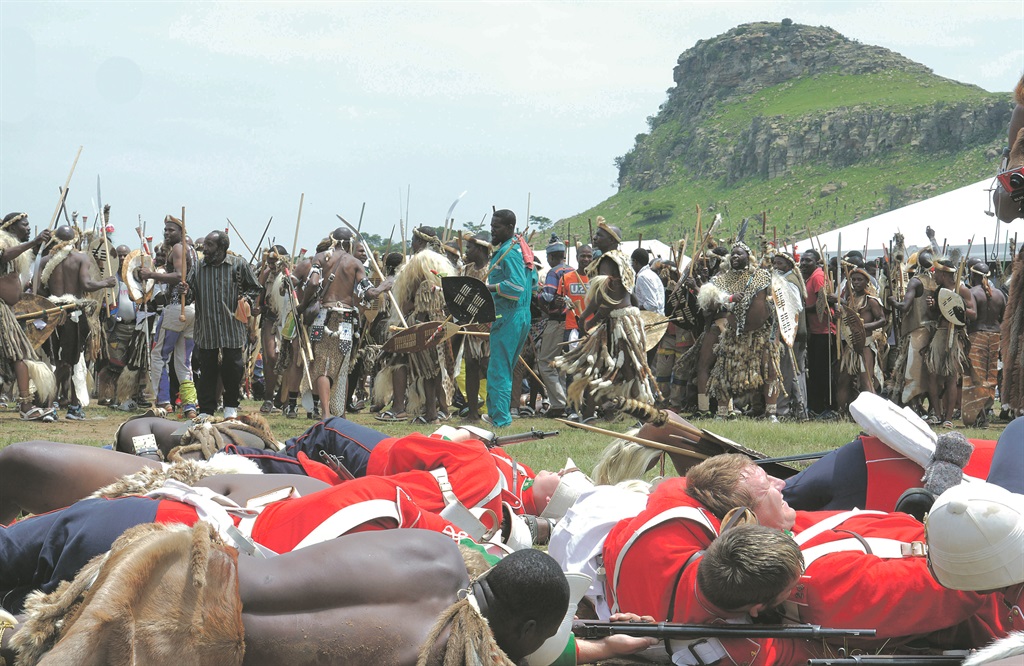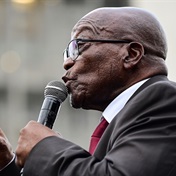
Trying to colonise an unwilling people rarely goes well. Not surprisingly, the colonial era is filled with conflicts and battles, some of which wound up having greater historical implications other than simply who was victorious.
January 22 will mark one such battle, that of Isandlwana, when, to the dismay of the British, amaZulu warriors defeated them. Despite being armed only with assegais and cowhide shields, against an army equipped with modern Martini-Henry rifles, the Zulus’ athleticism, discipline and outright bravery won the day. King Cetshwayo was heard saying: “An assegai has been thrust into the belly of the nation.”
Though most descendants will not consciously recognise it, one of the main functions of their coming together for commemorative occasions will be communally to reaffirm a distorted view, and thus reinforce an ideology of white superiority which some remnants of white-skinned class have long used, and continue to use, to justify their demagogic racism against the country’s black-skinned working class.
I am reminded of one of Chinua Achebe’s famous quotes of a proverb: “Until the lions have their own historians, the history of the hunt will always glorify the hunter.”
So it is that the African experience during these battles does not fit in with the image of a beneficent white history; therefore black people’s side of history is eliminated from public consciousness.
In the case of the Anglo-Zulu war this means, among other things, typecasting the Zulu as a primitive warrior people who were prevented only by the British army’s intervention of 1879 from destroying the progressive colony of Natal. Savage and bloodthirsty though they were in war, the Zulu proved noble and honourable in defeat and, when their country was eventually annexed, first to Britain and then to Natal, settled down as trusted retainers for their new masters.
This, the popular view of the war and its aftermath, does not concern itself with the greed and hypocrisy of the imperialist who manoeuvred the Zulu into war; it does not concern itself with the subsequent reduction of an independent people to the position of an impoverished peasantry and underpaid wage-labour force. Rather, it propagates a view of history which had its origins far back in the European penetration into south-east Africa but which is still, for political reasons, preserved today.
To this day, historians have sought to reduce this important victory into some massacre or an atrocity. One John Laband (Natalia, 2009) suggests: “We must not be seduced by the spectacular success of the conventional Zulu army at Isandlwana into believing (along with the British public and white settlers at the time) that the regular amabutho best represented the fighting spirit and military skills of the Zulu.”
This commemoration obliges us to engage in historiographical debate, but to contextualise the Battle of Isandlwana within its historical significance in Africa’s anti-colonialist wars in general, and the dehumanisation of black South Africans in particular.
We need to realise that the struggle over years has been organised along a left-right spectrum defined by economic issues, the left wanting more equality and the right demanding greater freedom. In today’s politics, that spectrum is disappearing, giving way to one defined by identity. The left has focused less on broad economic equality and more on promoting the interest of a wider variety of groups (including gay, lesbian, rural, youth, women) seen as being marginalised.
Our duty, in correctly contextualising the battles, grows from the need to distinguish between one’s inner self and an outer world of social rules and norms that do not adequately recognise that inner self’s worth or dignity. Individuals throughout human history have found themselves at odds with their societies.
But only in modern times has the view taken hold that the authentic inner self is intrinsically valuable and the outer society systematically wrong and unfair in valuation of the former. It is not the inner self that has to be made to conform to society’s rules, but society itself needs to change.
The inner self is the basis of human dignity, but the nature of that dignity is variable and has changed over time. In many early cultures, dignity is attributed only to a few people, often warriors who are willing to make the ultimate sacrifice in battle.
It was Bishop John William Colenso, the bishop of Natal from 1853 to 1883, who, during a sermon in commemorating the battle of Isandlwana, asked the question: “Wherein, in our invasion of Zululand, have we shown that we are men who love mercy? Did we not lay upon the people heavily, from the very moment we crossed their border, the terrible scourge of war? Have we not killed already, it is said 5 000 human beings, and plundered 10 000 heads of cattle?”
The continued viewing of the wars against colonising insurgents through the eyes of the class that prosecuted it does more than close us off from the experiences of most of the participants. It also leads to severe indignation and misinterpretation about the war and its part in the history of South Africa, and Africa in general.
The framework in which the war must be seen is that of the necessity to develop capitalism in Africa and the creation of a false image of Africans, to make a racial caricature of the African peoples, to falsify their way of life of its people and to distort history.
We must substantially explain to our younger generation that the ethnocentric bias, misleading romanticisation, pro-European distortion and racist attitudes are purposely created by historians. The truth is that amaZulu (and Africans) were defending themselves, their wives and children, and their way of life against unprovoked attacks.
The Zulu victory at Isandlwana was not a massacre or an atrocity. The exhilarating images of the wars against imperialism are not only ludicrous but a reflection of the aristocratic ethos which pervaded not only the sources but also the reconstruction of the battles.
So, after more than a century we are to try to see the war not only for what it was, but for what it is; we must sweep away the dreams and the nightmares of the men who brought the wars to Africa, who failed against the Zulu army, and who have successfully obscured the extent of their failure and the nature of the wars for 140 years.
While we commemorate the brave men who fell in that war, we must also remember why they died, what the colonialists hoped to achieve and why our warriors defended their fatherland with such vigour. Those who died and those who suffered as a consequence deserve a better memorial than the sentimental trash, in print and film, created by those with commercial interests.
Maxon is a public servant and social commentator
TALK TO US
Are South Africans doing what is necessary to accurately understand and teach our history?
SMS us on 35697 using the keyword BATTLE and tell us what you think. Please include your name and province. SMSes cost R1.50. By participating, you agree to receive occasional marketing material




 Publications
Publications
 Partners
Partners








